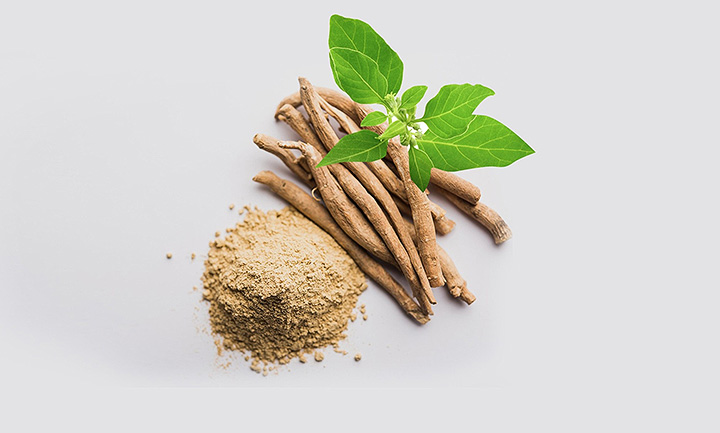Sleep Support
8 Lifestyle Tips for Stress

In today's fast-paced world, stress has become a common experience. Whether it's the demands of work or the responsibilities of raising a family, stress can often feel like a constant presence. Stress can even take its shape in some physical ways you may not have thought of before. The good news is there are several different strategies to help you minimize stress while also living a healthier and more fulfilling lifestyle. Let’s talk about what you can do to bring calmness into your life.
What is stress?
Stress is a natural reaction to life’s challenges and demands that can create physical, emotional, or mental responses. Our bodies have developed ways of dealing with stress, whether it's a sudden, intense stressor or an ongoing, persistent one.
In the past, our bodies’ stress response was triggered by intense and short stressors, like coming across a wild animal or extreme weather. But modern times can be full of many ongoing, persistent stressors which can take their toll. Small, daily stressors may not be an immediate threat, but can still have a significant impact on our well-being, particularly when they stack up over time.
It's important to remember that what may be stressful for one person may not be for another. For example, speaking in front of a large group may be very stressful for your friend while you may find it exciting. Everyday situations like driving in traffic, getting a letter from the IRS, selling a home, or trying to juggle making dinner while keeping track of your kids’ afterschool activities can all contribute to stress for many people.
Why should you reduce stress?
Over time, chronic stress can take a toll on our physical and mental well-being. It’s important to practice effective stress management techniques to support your overall health.
When we encounter a stressor, whether it’s immediate or prolonged, our bodies go into “fight or flight” mode. Stress hormones, such as cortisol, are released and our bodies send more oxygen and blood to our cells. Glucose, the sugar in our blood, is also released to provide energy for our bodies and cells to protect ourselves. While these mechanisms evolved to helps us flee a predator, it’s still the same processes that happen today, no matter how big or small the stressor is.
However, prolonged stress and the constant release of cortisol can be harmful. Our bodies are not designed to stay in a high-stress state for long periods of time. Longer term ongoing stress may have increased negative health impacts on your:
- Immune system
- Cardiovascular system
- Digestion
- Sleep
- Changes in appetite
- Memory
What are symptoms of stress?
According to the U.S. Department of Health and Human Services, stress impacts everyone differently and can show up in our bodies in various ways, such as:
- Acne or other rashes
- Stomach upset
- Forgetfulness
- Lack of energy
- Trouble sleeping
- Mood disturbances
Stress Management Techniques You Can Try
The good news is that there are many things you can do to help manage stress. While it may not be possible to completely remove stress from your life, incorporating stress management techniques into your day can help you and your body deal with it more effectively.
It’s important to remember we are all unique, and what works for your friend may not necessarily work for you. With that in mind, there are a variety of stress management techniques to try. Here are some strategies that have been shown to be effective in relieving stress:
1. Meditation
There are many different meditation types. These range from breathing techniques to types of mindfulness to walking meditations. You can find mobile apps, books, and in-person or online classes, that can help teach you how to meditate to help manage stress. Learning to meditate is a skill and improves with practice.
2. Tai Chi
Tai Chi is a series of slow gentle movements and specific postures that are based on an ancient Chinese martial art. These connected slow movements have been shown to have positive benefits for the body and mind. You can find tai chi classes both in tai chi studios, local community groups, and online.
3. Physical Activity
Regular physical activity, in many different forms, is shown to help manage stress. Any activity that gets you up and moving can be helpful. Activities like yoga, going out for a walk or jog, or something more structured like weight training can help you deal with stress and has also been shown to lower blood pressure.
4. Creative Hobbies
A wide variety of creative activities can help take a bite out of your stress levels. Hobbies can help pull your mind off your stress and focus on creating something else. Making art, getting involved in a local community group, taking a class or learning how to do a new skill are just a few options. Some people enjoy fiber arts like knitting or crochet, others like building things with wood. Finding an activity that YOU enjoy is what matters most.
5. Sleep
Getting a good night’s sleep on a regular basis is key to managing stress. To help ensure a better night’s sleep, follow good sleep hygiene guidelines such as keeping a consistent sleep schedule, avoiding screens before bed, and keeping your bedroom cool and dark.
6. Play with your Pets
Pet ownership is linked to lower levels of stress. Whether walking your dog, playing with your cat, or stroking the soft fur of your pet rabbit, pets can be an important part of managing daily stress. Pets can help you get outside, be more active, and they also provide companionship and support—all of which help with stress reduction.
7. Time with Friends
Spending time connecting with good friends can play a vital role in reducing stress. Whether it’s chatting over a cup of coffee, going for a walk, or meeting up to watch a movie, spending quality time with loved ones and fostering a sense of community is important for stress reduction.
8. Time in Nature
Immersing yourself in nature can be a powerful way to lessen stress. Whether you have a personal garden where you can unwind or prefer the outside on a hike, spending time in nature can be helpful in lowering your stress levels. If you don’t have access to a garden, consider joining a community garden. If you like hiking, online resources can help you find local hikes or green spaces to connect with nature. Even a leisurely walk outside, where you can take a moment to notice the shape of the leaves or colors of flowers can be a nice break after a stressful day.
Are there supplements for stress?
Yes, there are supplements that can help manage stress. One such supplement is an adaptogen called Ashwagandha. Ashwagandha is traditionally used as part of the Indian Ayurvedic system. Ayurveda is a traditional practice in India, which combines herbs with diet, exercise, and lifestyle approaches. The botanical name for ashwagandha is Withania somnifera, and it’s also known as “Indian Winter cherry” or “Indian Ginseng.”
Vitafusion Ashwagandha contains 125mg of clinically-shown Sensoril™ Ashwagandha, an adaptogenic herb that helps you manage stress.* These delicious blueberry-flavored gummy supplements turn stress management into a delicious part of your day!
Manage Your Stress & Feel More Like Yourself
Whether you decide to enroll in that workout class, take a second to practice breathing exercises before bed, or enjoy Ashwagandha gummies every afternoon, there are so many different ways to help manage stress. See which ones work best for you!
Brought to you by the vitafusion™ nutrition experts.



